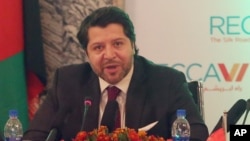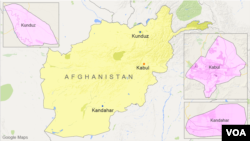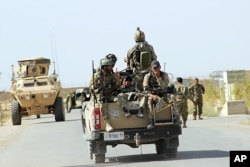A top government official in Afghanistan revealed more than 1,300 foreign fighters linked to various regional and international terrorist groups had participated in the recent battle for control of northern city of Kunduz.
“These foreign fighters came from Pakistan, Tajikistan, China and various other countries,” Afghan deputy foreign minister Hekmat Khalil Karzai told a regional economic and political meeting Sunday in Kabul.
He said that the militant groups operating in Afghanistan range fromal-Qaida, Daesh (Arabic acronym for Islamic State), anti-China East Turkistan Islamic Movement (ETIM) and the Islamic Movement of Uzbekistan (IMU).
“But end objectives for all these groups is not Afghanistan. The end objective for many of these groups is regional and global aspiration that they want to pursue," said Karzai.
Karzai said Afghanistan was shouldering responsibility on behalf of the region to take on these extremists and called for collective efforts to deal with the threat.
“Unless we deal with these common threats and common challenges collectively each of us are going to suffer,” he warned.
The Taliban insurgency had briefly captured Kunduz in September. It was a blow to internationally-trained and equipped Afghan security forces.
The Taliban was driven out of the key northern city with the help of NATO-led air support, although the coalition is stationed in Afghanistan only to advise and train local forces.
The Islamist insurgency, however, had rejected as unfounded allegations at the time that foreign fighters were also part of its offensive on Kunduz.
The Taliban has inflicted heavy casualties on Afghan forces in the current fighting season and made territorial gains elsewhere in Afghanistan.
Independent observers and even Afghan opposition politicians have cited governance issues as well as the official policy of relying on privately-run armed militias as major reasons for the fall of the city to the Taliban.
Residents say militia commanders were committing human rights abuses and other criminal activity prior to the Taliban offensive.
Afghan officials allege the foreign fighters were mostly based in neighboring Pakistan's militant-dominated North Waziristan border area and managed to flee to Afghanistan after the Pakistani military launched a long-demanded offensive against their hideouts in the area last year.






